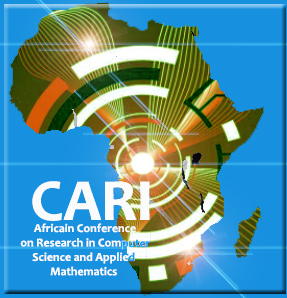They made the CARI happens .. 1992-2017
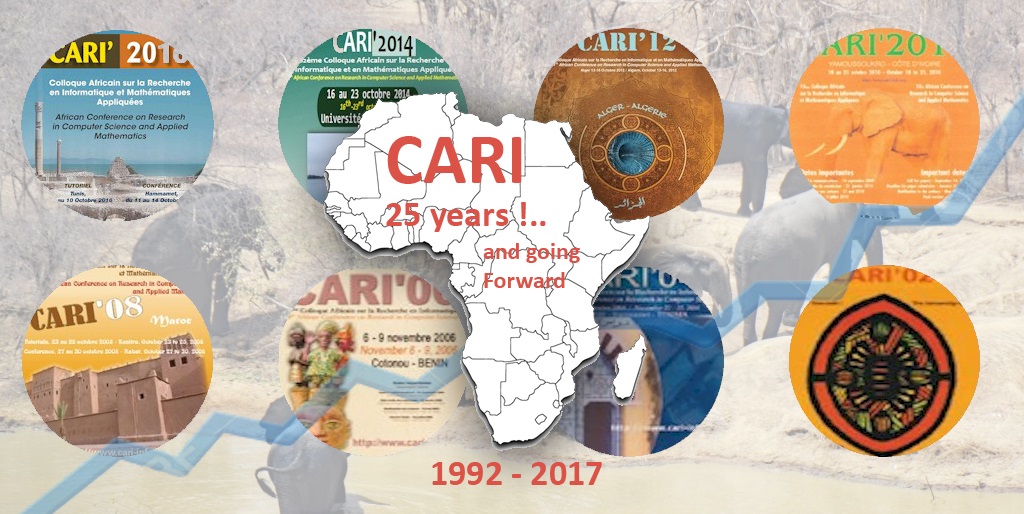
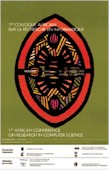
1992: Yaoundé, Cameroun : Le CARI voit le jour dans le cadre de la convention entre l’Université de Yaoundé I, l’United Nations University (UNU), et l’Institut National de Recherche en Informatique et en Automatique (INRIA). Il bénéficie du soutien du ministère français de la Coopération et de l’UNESCO.
1992: Yaounde, Cameroon: CARI emerges from an agreement between the University of Yaoundé 1, the United Nations University (UNU) and France’s National Institute for Research in Computer Science and Control (Institut National de Recherche en Informatique et en Automatique – INRIA). It receives support from the French Ministry for International Development and UNESCO.
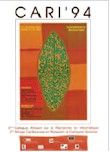
1994 – Ouagadougou, Burkina Faso : Les porteurs du CARI définissent une charte . L’Institut Français de Recherche Scientifique pour le Développement en Coopération (ORSTOM, renommé IRD en 1998) rejoint le projet. Trois projets de recherche sont soutenus (PARALLEL, SIAD, VOAR) ; ils serviront de point de départ à des projets plus ambitieux.
1994: Ouagadougou, Burkina Faso: CARI’s backers define a charter. The French Scientific Research Institute for Cooperative Development (ORSTOM, renamed the Research Institute for Development – IRD in 1988) joins the project. Three research projects have received support (Parallel, SIAD, and VOAR); they will serve as a starting point for more ambitious projects.
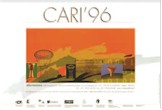
1996: Libreville, Gabon: Le CARI compte trois nouveaux partenaires : le ministère français de la Coopération et du Développement, le Centre International de Mathématiques Pures et Appliquées (CIMPA), organisme international oeuvrant pour l’essor des mathématiques dans les pays en voie de développement et le CIRAD, centre de recherche français qui répond, avec les pays du Sud, aux enjeux internationaux de l’agriculture et du développement.
1996: Libreville, Gabon: CARI collects three new partners: The French Ministry for Cooperation and Development; The International Centre for Pure and Applied Mathematics (ICPAM), an international organisation working for the growth of mathematics in developing countries and the CIRAD, a French research centre working with developing countries to tackle international agricultural and development issues.

1998 Dakar, Sénégal : L’Agence Universitaire de la Francophonie (AUF, ex AUPELF-UREF) rejoint les partenaires. Les pays du Maghreb participent massivement au CARI. Le projet européen SIMES (« Système d’Information Multimédia pour l’Environnement Subsaharien ») est lancé. France Télécom apporte un soutien financier. L’UNESCO prend part au CARI.
Dakar, Senegal: The French-speaking Universities Association (AUF, previously AUPELF-UREF) joins the partners. Maghreb countries are wholeheartedly involved in CARI.
The European SIMES project (for a multimedia information system for the sub-Saharan environment) is launched. France Telecom provides financial support. UNESCO takes part in CARI.
.
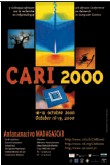
2000: Antananarivo, Madagascar : Le ministère des Affaires ةtrangères et Européennes français devient partenaire. La participation malgache prend de l’importance. Naissance du projet CAMEREAU (hydrogéologie au Cameroun).
2000: Antananarivo, Madagascar: France’s Minister for Foreign and European Affairs becomes a partner. Madagascar’s involvement becomes substantial. Camereau project set up (hydro-geology in Cameroon).
.
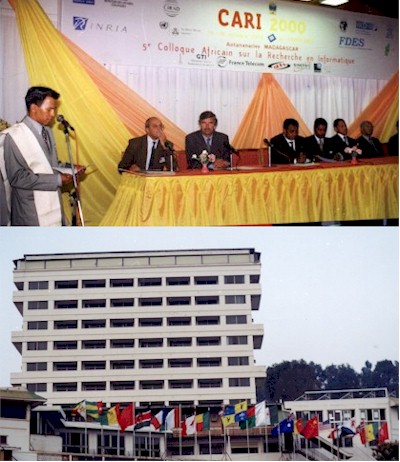
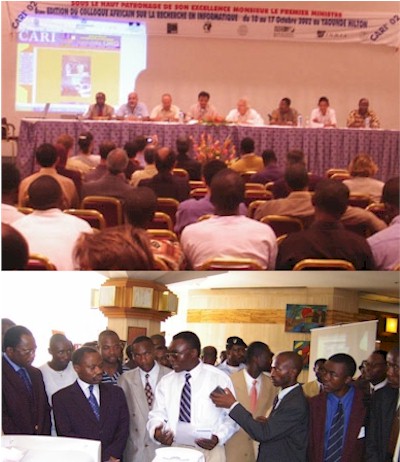
CARI’2000 – MADAGASCAR
Opening Ceremony
CARI’2002 – CAMEROON
Opening Ceremony
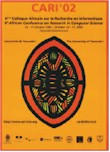
2002: Yaoundé, Cameroun: Retour aux sources à Yaoundé pour le 10e anniversaire du CARI. Parution du premier numéro de la revue ARIMA (revue Africaine de la Recherche en Informatique et Mathématiques Appliquées), aujourd’hui en ligne.
2002: Yaounde, Cameroon: Back to our roots in Yaoundé for CARI’s 10th anniversary. Publication of the first edition of the ARIMA journal (African journal of Research into Computer Science and Applied Mathematics), online.
.
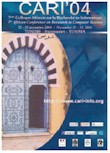
2004: Tunis, Tunisie : Démarrage du Projet SARIMA, de soutien aux activités de recherche en informatique et mathématique en Afrique : projet d’envergure visant à développer un réseau de pôles d’excellences, modèle de coopération équilibrée entre équipes au Nord et au Sud.
2004: Tunis, Tunisia: Start-up of the SARIMA project, supporting research activities in computer science and mathematics in Africa, a large-scale project aimed at developing a network of centres of excellence, a balanced cooperation model between northern and southern teams.
.
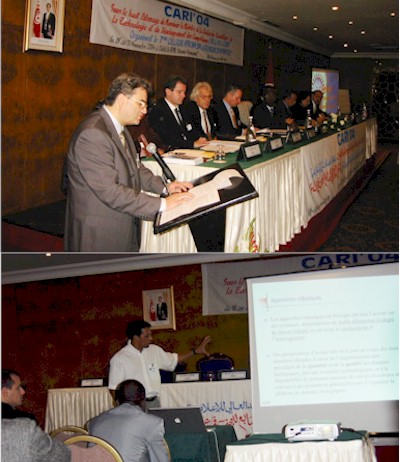
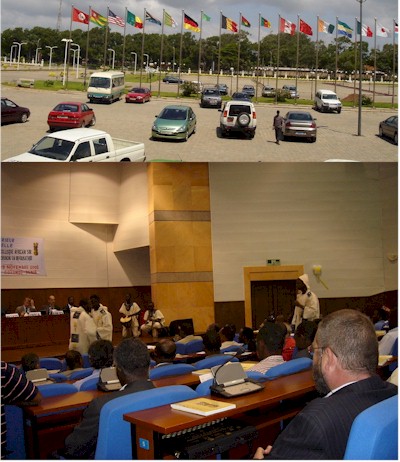
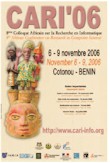
2006 Cotonou, Bénin : Multiplication des thématiques de recherche : forte importance du calcul scientifique et émergence des problématiques de modélisation.
2006 Cotonou, Benin: Increased number of research topics, emphasis on scientific computation and emergence of modelling issues.
.
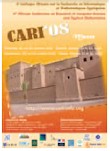
2008: Rabat, Maroc : Les contributions scientifiques du CARI sont désormais réparties en 7 thèmes de recherche : modélisation des systèmes complexes ; signal, image et multimédia ; calcul scientifique et parallélisme ; intelligence artificielle et apprentissage ; systèmes d’information ; systèmes distribués, systèmes embarqués, réseaux, mobilité ; méthodes formelles pour le génie logiciel.
2008 Rabat, Morocco: CARI’s scientific contributions are now split into seven research areas: modelling of complex systems; signal, image and multimedia; scientific computation and parallel processing; artificial intelligence and machine learning; information systems; distributed systems, embedded systems, networks and mobility; formal methods for software engineering
.
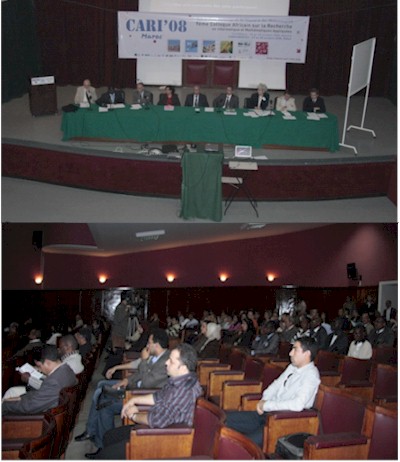
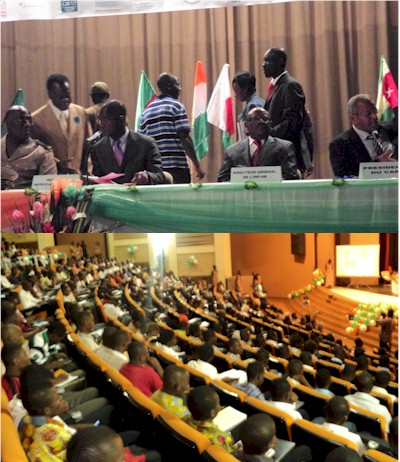
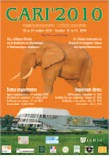
2010 Yamoussoukro, Côte d’Ivoire : Anniversaire de la 10e édition des CARI Premier colloque depuis la création fin 2009 du Laboratoire International de Recherche en Informatique et Mathématiques Appliquées (LIRIMA) et de l’Unité de Modélisation Mathématique et Informatique des Systèmes Complexes (UMMISCO).
2010 Yamoussoukro, Ivory Coast: The tenth time CARI has been held! First conference since the formation in late 2009 of the International Laboratory for Research in Computer Science and Applied Mathematics (LIRIMA) and the Unit for Mathematical and Computer Modelling of Complex Systems (UMMISCO).
.
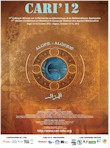
2012: Algiers, Algeria : CARI 2012 dans onzième édition s’est tenu dans les locaux du CERIST à Alger du 13 au 16 octobre 2012. L’organisation du colloque a reposé sur le comité local d’organisation regroupant le CERIST, le CDTA, l’USTHB LRIA et l’ESI, coordonné par le professeur Mokhtar Sellami de la DGRSDT. Après la séance inaugurale, qui s’est tenue en matinée en présence de nombreux officiels, le programme a fonctionné en trois sessions parallèles, en dehors des conférences invitées, qui ont eu lieu en assemblée plénière. 62 articles ont été retenus parmi 166 soumissions.
2012: Algiers, Algeria :: The African Conference on Research in Computer Science and Applied Mathematics held its eleventh edition at CERIST in Algiers, Algeria 13-to-16th of October 2012. The organization of the conference was based on the 2012 local organizing committee consisting of CERIST, CDTA, USTHB LRIA, and ESI, coordinated by Prof. Mokhtar Sellami. The program was very dense and held in three parallel sessions except for the invited keynotes lectures that were given in plenary sessions. They were 166 submissions, of which 62 have been accepted.
.
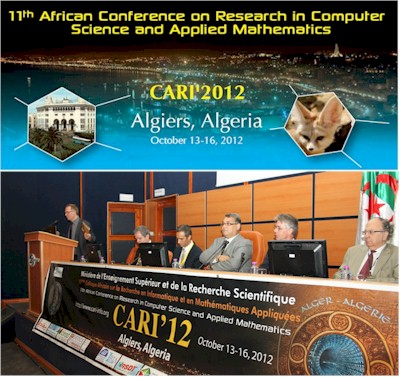
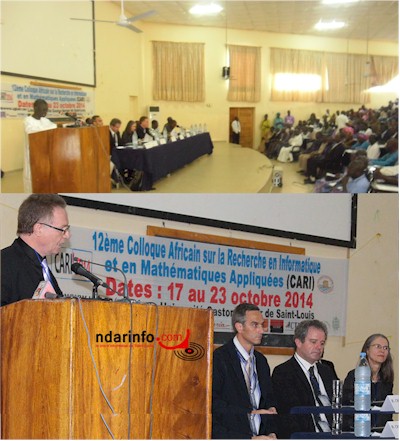
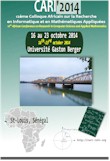
2014 Saint_Louis, Senegal: L’organisation locale de la douzième édition CARI’2014 a été confiée à l’Université Gaston Berger de Saint-Louis du Sénégal, Sénégal, soutenu par les partenaires français : Inria, Cirad et IRD, et les organisations internationales AUF et le CIMPA. Plus d’une centaine de chercheurs africains et du monde ont participé à cette édition pour présenter plus de 38 articles. Il faut rappeler que l’Université Gaston Berger se positionne comme un label d’Excellence Africain en Mathématiques, et en Informatique (CEA-MITIC).
2014 Saint_Louis, Senegal: The local organization of the twelfth edition CARI’2014 was entrusted to the Gaston Berger University of Saint-Louis of Senegal, and supported by the French partners: Inria, Cirad and IRD, and the international organizations AUF and CIMPA. More than a hundred of African and world researchers participated in this edition to present 38 articles. It should be noted that the Gaston Berger University is positioned as an African Excellence institution in Mathematics and Computer Science (CEA-MITIC)
.
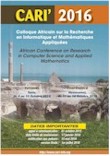
2016: Tunis, Tunisia : Cette treizième édition, confiée à l’Ecole Nationale d’Ingénieurs de Tunis (ENIT), sous la coordination du professeur Nabil Gmati, a bénéficié d’un large soutien des institutions universitaires tunisiennes et l’Institut Français de Tunisie . Cette édition du CARI a été la première pour laquelle les tutoriels qui précèdaient traditionnellement le CARI sont remplacés par une Ecole de Recherche CIMPA. 51 articles ont été retenus parmi 130 soumissions. Lors de cette cession le comité permanent a opté pour certaines résolutions afin d’augmenter la visibilité du CARI et donner aux coordonnateurs des thèmes plus d’interactivité à travers le site web de la conférence.
2016: Tunis, Tunisia : This thirteenth edition, entrusted to ENIT (Ecole Nationale d’Ingénieurs de Tunis), under the coordination of Professor Nabil Gmati, has profited from a generous support of the tunisian academic institutions and the Institut Français de Tunisie (IFT). This edition of CARI was the first one for which the tutorials are replaced by a CIMPA-ICPAM Research School. They were 130 submissions, of which 51 have been accepted. During this event in Tunis, the permanent committee opted for certain resolutions in order to increase the visibility of the CARI and to give the coordinators of the themes more interactivity through the web site of the conference.
.

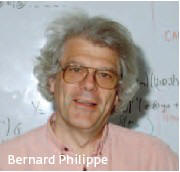
Bernard Philippe: Co-organisateur du 1er CARI, co-fondateur du projet SARIMA, directeur de recherche émérite à l’INRIA Rennes. « Le CARI est l’expérience rare d’une rencontre entre chercheurs, où Nord et Sud coopèrent pour agir dans un but commun. Au fil de ces dix rencontres, une vraie dynamique s’est créée, à travers un réseau stable de scientifiques. On ne compte plus les activités qui en sont issues. Le CARI poursuit sa vie en s’adaptant aux changements du monde et la coopération est toujours plus égalitaire. Le CARI montre qu’une communauté de citoyens peut se prendre en main pour changer les rapports dominants à son échelle ».
Co-organiser of the first CARI, co-founder of the SARIMA project, emeritus senior research scientist at INRIA Rennes. “CARI is that unusual experience, a researchers’ forum, where northern and southern countries cooperate to work towards a common goal. Over the course of these ten conferences, a real dynamic has built up, through a stable network of scientists.
.
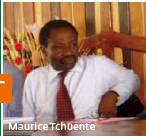
Maurice Tchuente: Ancien ministre de l’Enseignement supérieur du Cameroun, enseignant-chercheur à l’université de Yaoundé I et à l’IRD, directeur du LIRIMA. « L’ouverture du CARI 92, prévue le lendemain d’une élection présidentielle sensible, avait failli être reportée… Finalement cette coïncidence s’est révélée bénéfique : dans un climat d’attentisme général, le colloque bénéficia d’une couverture médiatique exceptionnelle. On lisait dans les yeux de tous la fierté d’avoir réuni une communauté française et africaine de recherche en informatique »
Former Minister of Higher Education in Cameroon, research lecturer at the University of Yaoundé 1 and IRD, LIRIMA director. “The opening of CARI 92, scheduled for the day after a tense presidential election, was almost postponed … Ultimately, this coincidence proved beneficial, since in a wait-and-see atmosphere, the conference gained the benefit of outstanding media coverage. Pride at having pulled together a French and African computer science research community could be seen on every face.”
.
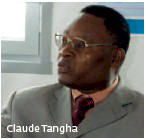
Claude Tangha: Co-organisateur du 1er CARI, il a oeuvré pour la mise en place de l’informatique à l’université de Yaoundé. Chef du département de génie informatique à l’école polytechnique de Yaoundé. « Dans les années 80, nous souhaitions sensibiliser nos autorités sur la nécessité de doter le Cameroun d’un centre de calcul et l’université de Yaoundé d’une filière informatique. La responsable de l’université des Nations Unies, Mme Wensley-Tanaskowick, portée par notre enthousiasme, a négocié une convention entre l’UNU, l’INRIA et notre université, pour accompagner la mise en place de programmes de recherche. Le CARI a brisé l’isolement des chercheurs africains et a associé nos structures dans des ensembles plus solides ».
Co-organiser of the first CARI, he worked to establish computer science at Yaoundé University. Head of the computer engineering department at Yaoundé engineering school. “In the 1980s, we wanted to raise the authorities’awareness of the need to give Cameroon a computing centre and Yaoundé University a computer science department. The head of the United Nations University, Mrs Wesley-Tanaskovic, carried along by our enthusiasm, negotiated an agreement between the UNU, INRIA and our university to support the establishment of research programmes. CARI has ended African researchers’ isolation and pulled our structures together into more solid units.”
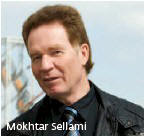
Mokhtar Sellami: Membre permanent du CARI de 2000 à 2008 et créateur de cari-info.org, Mokhtar Sellami est directeur de la programmation de la recherche au ministère de l’Enseignement supérieur et de la Recherche algérien. « j’avais travaillé une dizaine d’années à l’INRIA Grenoble, ce qui m’a permis de favoriser le rapprochement entre l’INRIA et l’Algérie. Les programmes rassemblant des chercheurs de l’Afrique sub-saharienne et du Maghreb sont rares, d’où l’intérêt de la communauté maghrébine pour le CARI ! Les CARI sont autant d’opportunités pour les scientifiques de valoriser leur recherche… Et de stopper la fuite des cerveaux en offrant à leur pays des infrastructures informatiques avancées ».
CARI standing committee member from 2000 to 2008 and creator of cari-info.org, Mokhtar Sellami is head of research scheduling at the Algerian Ministry of Higher Education and Research. “ I worked at INRIA Grenoble for about ten years, which enabled me to encourage closer ties between INRIA and Algeria. Programmes combining researchers from sub-Saharan Africa and the Maghreb are rare, hence the interest in CARI from the Maghreb community. CARI events are opportunities for scientists to showcase their research … and stop the brain-drain by offering their countries advanced computer science infrastructure.”
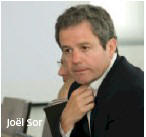
Joël Sor: Directeur des systèmes d’information du CIRAD, Joël Sor est membre du Comité permanent du CARI depuis 1996. « Le CIRAD a découvert le CARI en 1994: un papier traitait déjà de modélisation de phénomènes complexes en agronomie. Avec sa longue tradition africaine, il se devait d’être partenaire du CARI. Présent au CARI 96… J’ai rejoint le comité permanent. Le réseau qui s’est créé au fil des ans me rend optimiste dans la poursuite de notre objectif : partager et innover ensemble ».
Head of information systems at CIRAD, Joël Sor has been a member of CARI’s standing committee since 1996. “CIRAD came across CARI in 1994 through a previous paper dealing with the modelling of complex phenomena in agriculture. With its long tradition in Africa, it had to become a CARI partner. Attending CARI 96 … I joined the standing committee. The network that has formed over the years makes me optimistic about pursuing our objective of sharing and innovating together.”
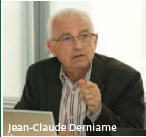
Jean-Claude Derniame: Membre du comité de programme 1992, professeur émérite à l’institut polytechnique de Lorraine, il donne des cours de génie logiciel et encadre des thèses à Yaoundé depuis les années 80. « Dans les années 1980, le laboratoire où je travaillais avait une convention avec l’Institut Africain d’Informatique de Libreville. J’allais régulièrement donner des cours en Afrique et j’ai été sollicité pour participer au comité de programme du 1er CARI. Mais lors des premières éditions, les discussions en marge du colloque étaient aussi importantes que les programmes ! »
Member of the 1992 programme committee, emeritus professor at Lorraine technical university, he has given courses in software engineering and supervised theses in Yaoundé since the 1980s. “In the 1980s, the laboratory where I was working had an agreement with the Libreville African Institute of Computer Science. I used to take regular trips to give courses in Africa, and I was approached to join the programme committee for the first CARI. But from the first few conferences, discussions on the fringes of the conference have been as important as the main programme!”
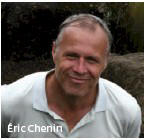
Eric Chenin: Chercheur à l’IRD et secrétaire exécutif du programme Sud Expert Plantes. « En 1995, en entrant à l’ORSTOM après 12 ans dans le privé et la haute technologie, j’ai découvert, à travers le CARI, l’Afrique et la recherche publique pour le développement. J’étais frappé par la qualité des projets conduits au Sud dans des conditions difficiles. Ces projets m’ont ouvert l’éventail des disciplines utilisatrices des modèles, auxquelles je me consacre aujourd’hui ».
IRD researcher and executive secretary of the French foreign ministry’s ‘Sud Expert Plantes’ programme. “In 1995, joining ORSTOM after 12 years in the private sector and high tech, I discovered, through CARI, Africa and public research for development. I was struck by the quality of the projects run in the South under difficult conditions. These projects exposed me to the range of disciplines using these models, which I am now focussing on.”
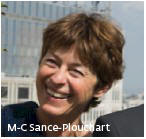
Marie-Claude Sance-Plouchart: Coordinatrice administrative du CARI depuis 1998 et de SARIMA, responsable administrative zone Afrique à l’INRIA. « Le CARI a été ma première découverte de l’Afrique et a émerveillé mes 20 ans à l’INRIA. J’ai eu l’impression d’y retrouver une famille. Au CARI, plus que dans tout autre colloque, la communauté scientifique vient apprendre à se connaître et à collaborer en réseaux. Nous menons une vraie politique de partenariat, équilibrée, Nord-Sud et Sud-Sud ».
Administrative coordinator for CARI since 1998, and for SARIMA, administration manager Africa region at INRIA. “CARI was my introduction to Africa, and has made my 20 years at INRIA marvellous. I felt I had found a family. At CARI, more than in any other conference, the scientific community comes to learn to get on and work together in a network. We apply a genuinely balanced partnership policy, North-South and South-South.”

Brigitte Kerhervé: Professeure au département d’informatique de l’ Université du Québec à Montréal. A contribué à la création du 1er CARI. « En avril 1986, je me suis rendue à Yaoundé pour dispenser un cours. La mission ne fut pas facile à organiser, la communication se faisant par télex ! La période 1986-1992 fut une période riche de rencontres avec des personnes exceptionnelles, engagées et motivées. Près de trente ans après leurs premières actions, le résultat est impressionnant ! »
Professor in the Computing Department at the University of Quebec in Montreal. Helped set up the first CARI. “In April 1985, I went to Yaoundé to give a course. The assignment was not easy to organise, as communication was via fax! Over the 1986-1992 period, I met many outstanding, committed and driven individuals. Nearly thirty years after these first steps, the result is impressive!”
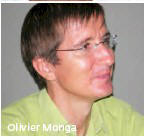
Olivier Monga: Olivier Monga est impliqué dans le CARI depuisson montage en 1990. Il est directeur de recherche à l’IRD. « En 1991, nous avons défendu le projet du CARI à l’ambassade de France, après avoir réceptionné à l’aéroport les premières stations de travail SUN pour le centre de calcul de l’université Yaoundé 1. Aujourd’hui, le CARI est le rassemblement des forces vives de la recherche en Afrique ».
Olivier Monga has been involved in CARI since it was formed in 1990. He is a senior researcher at IRD. “In 1991, we lobbied the French embassy to promote the CARI project, having received the first Sun workstations at the airport for the computing centre at the University of Yaoundé1. CARI is nowadays the focus for the driving forces behind research in Africa.”
